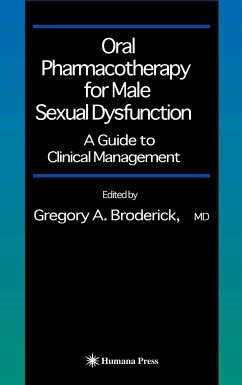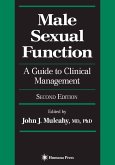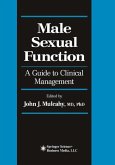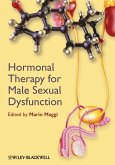With the advent of such oral drugs as Viagra®, Cialis®, and Levitra® for the treatment of erectile dysfunction (ED), the burden of first patient evaluation has fallen on the primary care provider. In Oral Pharmacotherapy for Male Sexual Dysfunction: A Guide to Clinical Management, highly experienced urologists and physician researchers review each aspect of male sexual dysfunction (interest, performance, and orgasm) and their implications for treatment. The authors address a wide variety of clinical issues, ranging from common medical risk factors for ED to the evaluation and management of men who have atypical presentations that require focused testing; from diabetic ED to the safety assessment of PDE inhibitors for cardiac patients; and from combination drug therapy for refractory patients to neuropharmacological therapies. Guidance is also provided for vacuum erection devices and surgical implants, the role of self-medication with dietary supplements, the management of post-prostatectomy ED, and the emerging pharmaceutical therapies for rapid ejaculation. On the pharmaceutical side, the authors summarize the pharmacology and development of PDE-type 5 inhibitors, review the preclinical data and 5 years of postmarketing data on Viagra®, examine the preclinical data on Levitra®, and discuss the design and conduct of US clinical trials of Cialis®. Authoritative and informative, Oral Pharmacotherapy for Male Sexual Dysfunction: A Guide to Clinical Management clarifies for urologists, family physicians, and internists each of the diagnostic approaches to male sexual dysfunction, as well as the pharmacological strategies available for its safe and effective management.
Dieser Download kann aus rechtlichen Gründen nur mit Rechnungsadresse in A, B, BG, CY, CZ, D, DK, EW, E, FIN, F, GR, HR, H, IRL, I, LT, L, LR, M, NL, PL, P, R, S, SLO, SK ausgeliefert werden.









